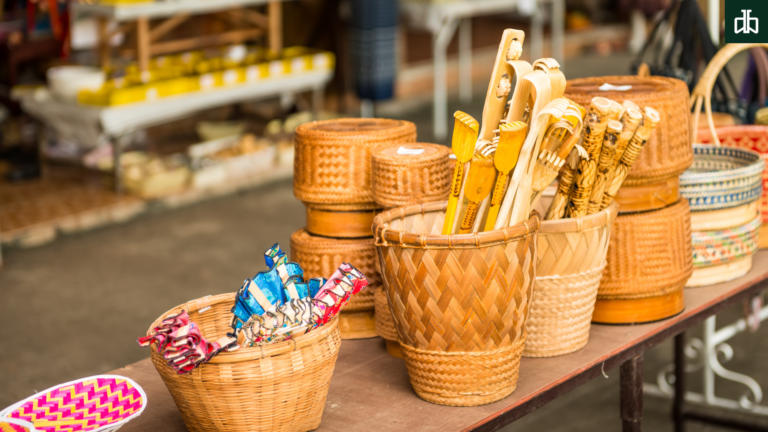Journey into the science behind bamboo
In the era of conscious consumerism, the search for sustainable living has become paramount. One material that shines brightly amidst this movement is bamboo. This article takes you on a journey into the science behind bamboo, revealing its unique properties and why it is considered the ultimate sustainable choice. Let’s delve into the world of bamboo and uncover its incredible impact on healing, wellness, and the environment.
Bamboo: Nature’s Marvel
Often mistaken for a tree, bamboo is a remarkable type of grass found in diverse climates worldwide. From the cold mountainous regions of the Himalayas to the hot tropical areas of Africa, bamboo spans continents and cultures, with its roots deeply embedded in Asian traditions. It has been used for thousands of years, not only for construction and textiles but also for food. Today, the applications of bamboo have expanded, resulting in innovative products like reusable paper towels and eco-friendly cleaning solutions, showcasing its versatility and endless possibilities for sustainable living.
The Rapid Growth of Bamboo: A Force of Nature
The sustainability credentials of bamboo lie in its astonishing growth rate. Some species hold the record for being the fastest-growing plants in the world, with the ability to shoot up three feet in just 24 hours under optimal conditions. This rapid growth ensures that bamboo forests can regenerate much faster than traditional hardwood forests, making it a highly renewable resource. By choosing bamboo, we ensure a continuous supply without the risk of deforestation, contributing to a healthier and greener planet.
Bamboo and the Fight Against Climate Change
Beyond its speedy growth, bamboo plays a vital role in carbon sequestration, making it a powerful weapon in the battle against climate change. Carbon sequestration involves capturing and storing atmospheric carbon dioxide, one of the primary greenhouse gases responsible for global warming. Thanks to its extensive root system and rapid growth, bamboo absorbs more carbon dioxide per unit area than many tree species. By embracing bamboo products, we are actively combatting climate change and creating a sustainable future for generations to come.
Versatility and Sustainability: A Winning Combination
Bamboo’s sustainability is further enhanced by its incredible versatility. This remarkable plant can be transformed into a plethora of eco-friendly and sustainable products, ranging from construction materials and textiles to paper and cleaning solutions. For instance, at Forever Bamboo, they harness the power of bamboo to create Bamboo Wall Paneling reducing the demand for less sustainable materials and promoting a more circular economy. By incorporating bamboo into our everyday lives, we align ourselves with the principles of sustainability and contribute to a brighter, cleaner future.
The Sustainable Cycle of Bamboo Production
The production process of bamboo exemplifies its sustainability. Unlike hardwood trees, which die once harvested, bamboo can be cut without killing the plant, allowing it to regrow quickly. This unique characteristic enables repeated harvests from bamboo forests without causing ecological damage. Furthermore, bamboo’s natural resistance to pests reduces the need for harmful pesticides, and its growth requires minimal fertilizers, further lessening its environmental impact. Choosing bamboo products means embarking on a sustainable journey and actively protecting our precious ecosystems.
Bamboo vs. Traditional Wood: A Clear Winner in Sustainability
When it comes to sustainability, bamboo outshines traditional wood. The production of bamboo products has a lower environmental impact compared to their wooden counterparts, primarily due to the rapid growth and regenerative abilities of bamboo. Additionally, bamboo can be harvested in a way that supports healthy ecosystems, providing habitats for wildlife and maintaining soil stability. In contrast, traditional wood harvesting often leads to deforestation, a significant driver of biodiversity loss and climate change. Choosing bamboo is a conscious decision towards preserving our planet’s wealth of resources.
Embrace Bamboo for a Sustainable and Wellness-Filled Future
Why is bamboo considered the epitome of sustainability? Bamboo’s rapid growth, regenerative abilities, carbon sequestration potential, and minimal reliance on pesticides and fertilizers make it a truly sustainable resource. Its benefits are numerous and far-reaching, with the power to help heal our environment while improving our overall well-being.
As we look to the future, bamboo holds vast potential in promoting sustainable living and driving green industries. Its applications are ever-expanding, and its unique properties continue to amaze. By integrating bamboo into our lives, we contribute to the betterment of our planet and ourselves. Let’s embrace the power of bamboo and pave the way for a brighter, greener, and more sustainable future.
Credits : foreverbamboo
Also Read: Secrets to Staying Active and Healthy on Your Travels






